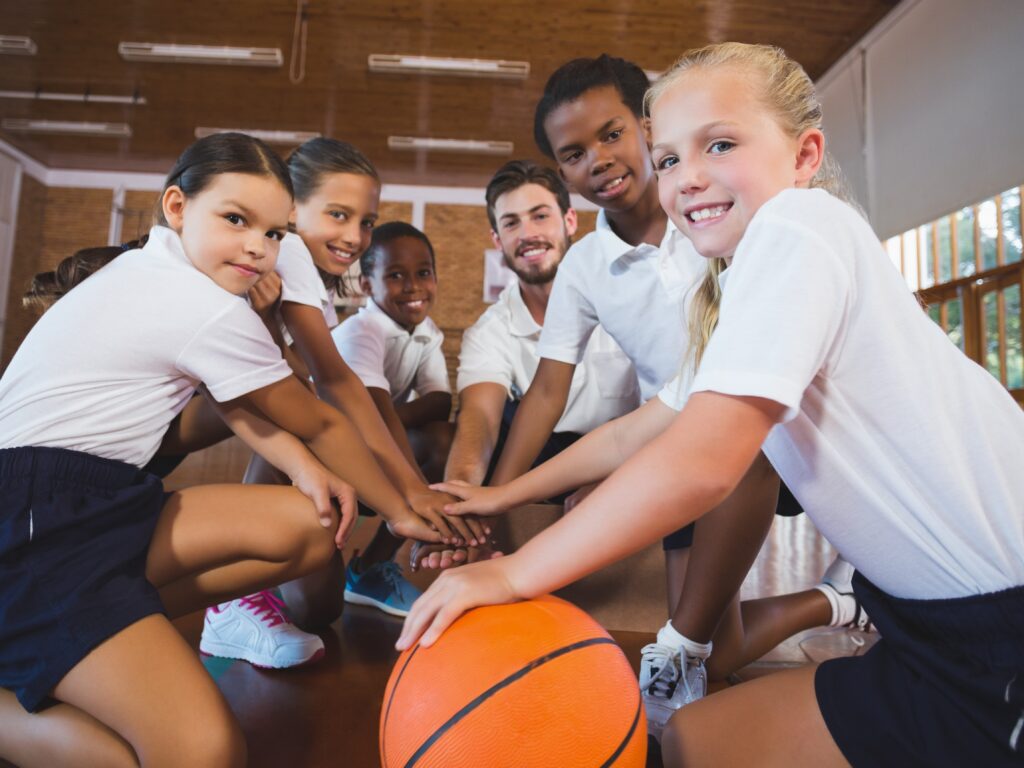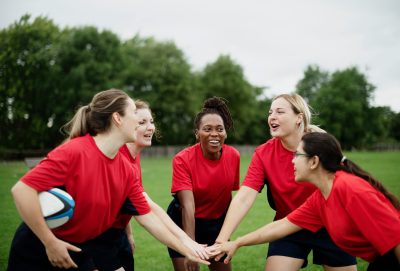In July, the government published an updated School Sport and Activity Action Plan. The aim is to help improve the quality, frequency, equality of access and participation rates of PE, school sports and physical activity.
The plan focuses on:
1) boosting the quality of school sports provision; and
2) increasing children’s opportunities for physical exercise at school, with a minimum two hours of high-quality PE lessons per week.
It also strives to ensure children have equal access to sport, regardless of socio-economic background or gender, and to raise the overall activity levels of all school children. The scope of the plan encompasses both the school day and extracurricular activities.
The case for investing in school sport
Sport England welcomed the government’s commitment to supporting schools to deliver more high-quality physical education, saying:
“Schools have a vital role to play in helping children to be physically active, and the habits we develop at a young age can last a lifetime.”
Of course, increasing activity levels contributes to general fitness and helps to reduce the risks of various medical conditions. For developing children in particular, undertaking a range of physical activities can also improve dexterity, coordination, strength and balance.
Physical exercise improves mental wellbeing
Sport England found that active young people are more likely to be happy and less likely to feel lonely. Also, participation in sport has been found to improve self-esteem, while reducing stress, anxiety and depression.
Social and cultural benefits of school sports
Additionally, schools should not overlook the social and cultural impact of sports participation. Motivated pupils choosing to engage during PE lessons or attend extracurricular sessions helps to build friendships amongst pupils. It also improves interactions between pupils and teachers, all of which can improve behaviour during the school day.
Further, structured, healthy competition, most commonly through sports clubs and inter-school tournaments, helps pupils learn about fairness, respect and resilience.
Meanwhile, representing their school in competitions can be very rewarding for pupils. Even non-participants may benefit from supporting school teams or athletes, as this fosters a special cultural connection amongst the students.

Equal access to school sports
Improving the quality and scale of sports provision in schools goes hand-in-hand with delivering equal access for all children.
Children’s physical activity levels are directly correlated to wealth. Those from the least affluent families are less likely to be active than their more affluent peers. Through the Holiday Activities and Food programme, some sports organisations are helping to support disadvantaged children. Thse groups are delivering sport sessions and sharing resources and facilities. Schools can also enable underprivileged children to attend extracurricular sports clubs at discounted rates or with Pupil Premium funding.
Closing the gender gap in school sports
Unfortunately, there also remains a divide in physical activity levels and access to sport between school-aged boys and girls. On average, boys are more likely than girls to be active. Boys also have more opportunities to play team sports, including football, basketball, cricket and rugby, within PE lessons and outside of school.
In 2022, the Football Association found only 75% of primary schools offered football in PE equally to girls and boys. In secondary schools this plummets to just 41%. The government’s 2023 action plan encourages school leaders to carefully consider which sports they offer and not discriminate by gender. It is crucial to provide girls and boys with equal access to the same sports.
Engaging pupils in physical activity
Find the right activities to inspire your students and create positive experiences at an early age. This will motivate children to participate in school sports and encourage them to stay active later in life. Exposure to fun, confidence-building activities can have a huge impact on children’s attitudes towards sport. This can make them more likely to participate in optional extra-curricular clubs.
Many schools now enable more pupils to discover their passion for sports by letting them try alternatives to traditional activities. These include more inclusive games for those with disabilities, such as boccia, new age kurling, handball and table cricket.
The government urges schools to keep competition fair, by evenly matching pupils based on ability, physical strength, and development stage. Check out the School Games website. You will find lots of information, and signposts towards guidance on various sports from many national governing bodies.
The power of extracurricular sports
Recognising the time-demands of the curriculum, the government’s action plan incorporates both PE lessons and extracurricular activities. Since the original plan’s publication in 2019, more schools have opened their sports facilities outside of the core school day and started running extracurricular clubs.
Sports clubs are a great way to encourage children to take up more physical activity. Clubs can be run more informally than PE lessons. Without any testing, it makes them potentially more comfortable environments for less-confident pupils. It is also less disruptive to run inter-school competitive sports tournaments outside of the core school day. After-school clubs are probably the best format for team sport practices.
Running clubs doesn’t have to create extra admin for schools. With the proper tools, it’s easy to set up extracurricular activities. You can manage funding streams such as Pupil Premium, collect parental consent and take session bookings and payments.


